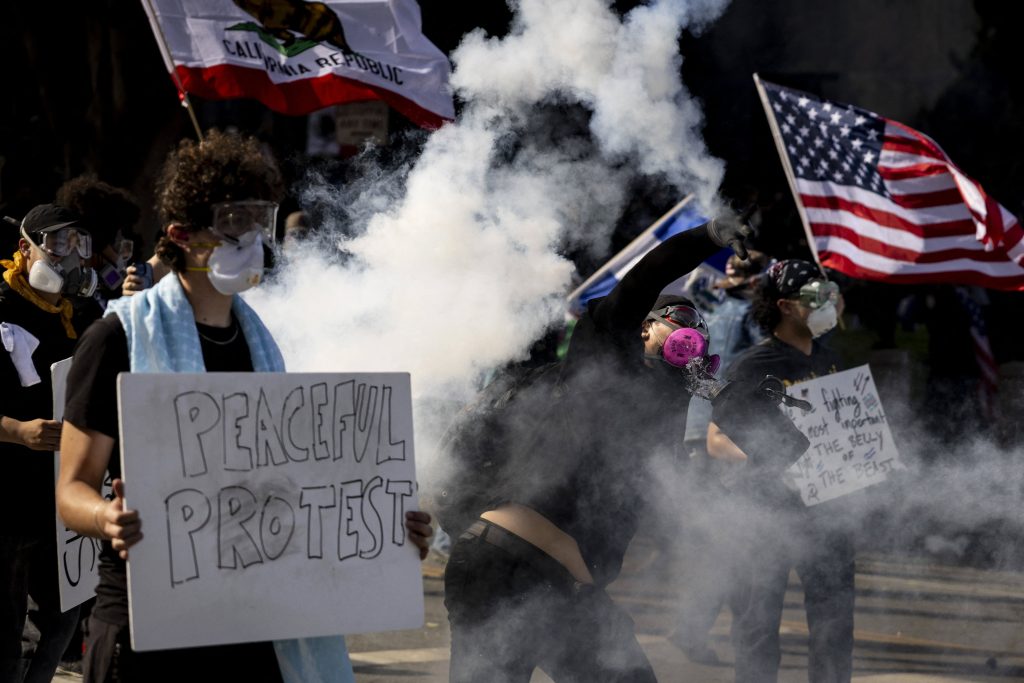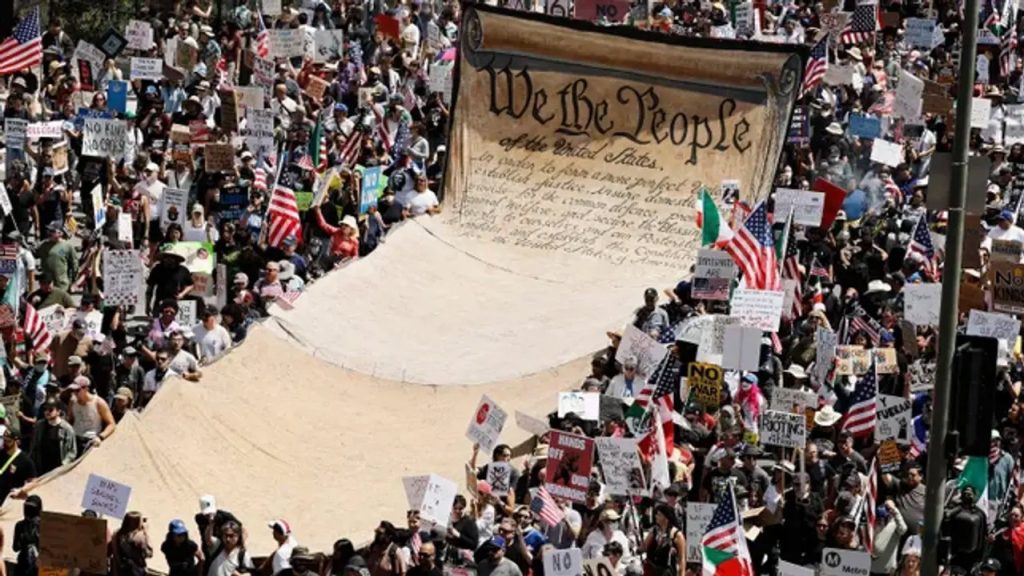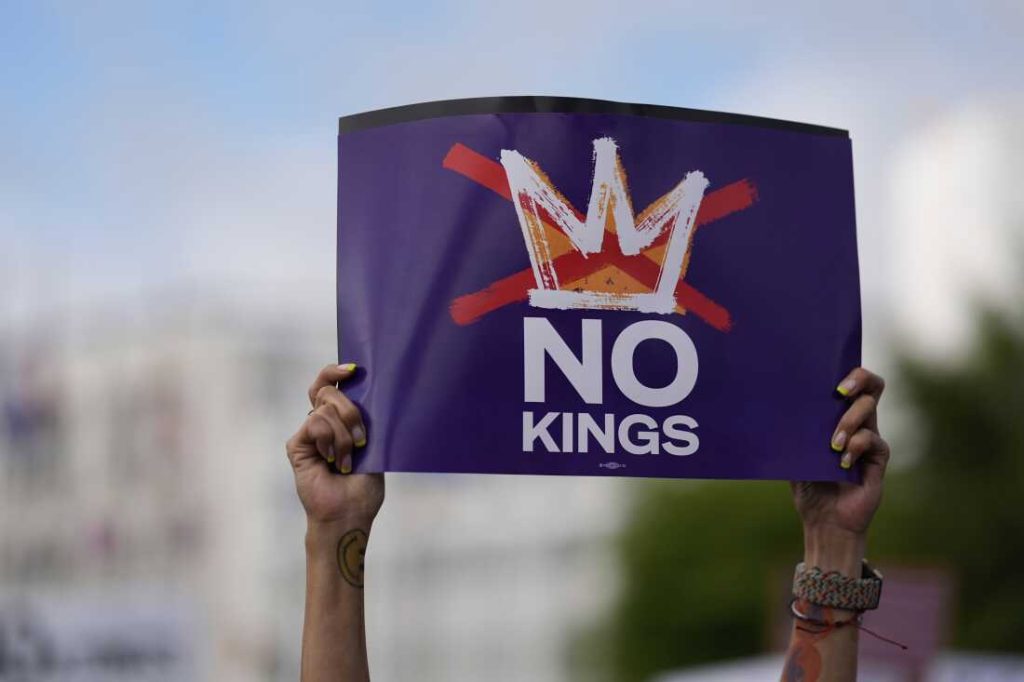Trending
No Kings: The Rising Tide of Protest Against Power and Privilege
In a year defined by political upheaval, generational unrest, and crackdowns on dissent, the phrase “No Kings” has emerged as a thunderous rallying cry for a new generation of activists. Painted on protest banners, chanted through megaphones, and trending across social media, it encapsulates a rejection of authoritarianism, elite control, and the culture of untouchable leadership — whether in monarchies, governments, universities, or tech empires.
The “No Kings” movement is not just a slogan; it is a symbolic refusal of power without accountability — and increasingly, it is colliding head-on with world leaders who epitomize that very power. In the United States, no figure is more central to this tension than former President Donald Trump, whose return to political dominance has reignited fierce debates about democracy, protest, and authoritarianism.

Origins: From Protest Chant to Political Statement
The slogan “No Kings” first gained traction among student protesters and leftist organizers during global demonstrations in 2023–2024. Rooted in anti-authoritarian traditions and inspired by historic revolutions, the phrase became especially prominent during the Gaza solidarity protests on U.S. and U.K. campuses.
At Columbia University, UCLA, and other elite institutions, students began organizing sit-ins and encampments to protest both U.S. foreign policy and their schools’ alleged complicity in funding war and injustice. In speeches and on signs, “No Kings” was used to call out not just foreign governments, but also university presidents, billionaires, and political dynasties — people and systems that wield disproportionate, unaccountable power.
The message was clear: No more blind obedience. No more cults of personality. No more leaders who behave like monarchs.
Trump’s Crackdown: Targeting Dissent
The return of Donald Trump to political office in 2025 marked a sharp escalation in the U.S. government’s response to protests. Campaigning on a promise to “restore order” and “crush campus chaos,” Trump publicly targeted pro-Palestinian demonstrators, accusing them of supporting terrorism and calling their actions “un-American.”
Nowhere was this more visible than in the case of Mahmoud Khalil, a Columbia graduate and prominent protester. In April 2025, Khalil — a U.S. permanent resident born in Syria — was arrested by immigration agents and held in a Louisiana detention facility for three months. The Trump administration sought to deport him, linking his activism to alleged support for Hamas, despite no evidence of such claims.
Khalil’s case quickly became a global flashpoint. Protesters across the country held rallies and wore shirts bearing the words “Free Mahmoud Khalil” and “No Kings. No Tyrants. No Deportations.”
Critics called Trump’s actions a direct attack on free speech, student rights, and political expression. “No Kings” became not just a chant, but a direct challenge to Trump’s brand of strongman politics.

What “No Kings” Stands For
The phrase is deceptively simple but deeply resonant. While it originated with protest movements opposing monarchies and military rule, it now serves as a metaphor for any form of centralized, unchecked power. The movement is against:
- Authoritarian leaders who rule through intimidation and fear
- Institutional elites are immune to criticism or reform
- Wealthy oligarchs who manipulate public policy and suppress dissent
- The myth of the political savior — whether left or right
Trump’s political career has embodied much of what “No Kings” protesters oppose: a cult of personality, attacks on the press, the use of state power against political enemies, and the silencing of dissent under the banner of “law and order.”
Global Reach: Beyond Trump, Beyond Borders
While Trump’s return has galvanized U.S.-based activism, the “No Kings” movement is global in scope.
In the United Kingdom, the phrase has been chanted during anti-monarchist demonstrations opposing the royal family’s privileges during a cost-of-living crisis. In Thailand and Malaysia, students have revived the slogan during protests demanding constitutional reform and democratic accountability. In Latin America, it has appeared at anti-corruption protests in Colombia, Brazil, and Chile.
“No Kings” has become a shared language of resistance — a global demand for decentralized, transparent, people-centered governance.

Culture, Clothing, and the Protest Economy
As with many modern movements, “No Kings” has extended into popular culture and fashion.
Protesters and artists alike have produced a wide array of T-shirts, posters, and patches bearing the slogan. Some designs feature broken crowns, chains being cut, or defaced portraits of world leaders. Many of these items are sold online to support legal defense funds for arrested protesters or to raise awareness.
One popular shirt reads: “No Kings. No Puppets. No Fear.” — with stylized images of political leaders, including Trump, fading into shadows. These protest items serve as both political statements and tools for fundraising and solidarity.
The Critics Respond
The movement has, predictably, drawn sharp criticism from political leaders and right-wing commentators. Fox News pundits have labeled “No Kings” a “Marxist dog whistle” and accused protesters of wanting to dismantle democracy itself.
Donald Trump has mocked the slogan at rallies, sarcastically saying, “They don’t want kings — unless it’s a woke one from Harvard or Hollywood.”
But for supporters, these attacks only prove the movement’s power. As one student organizer put it: “They’re scared of us because we’re not looking for a new king. We’re building something better — where no one rules over anyone.”

Looking Forward: From Protest to Power
The greatest challenge for “No Kings” is the same faced by every protest movement: How to turn slogans into change.
Will the energy of 2025 protests translate into new policies, institutional reform, or sustained grassroots organizing? Or will it burn out under the weight of legal threats, surveillance, and political backlash?
Activists are clear-eyed about the risks. Many face arrests, academic penalties, and harassment. But the core message endures: power must answer to the people — not the other way around.
Conclusion: No Kings, No Fear
In the face of rising authoritarianism, militarized crackdowns, and the return of Trump-era repression, the “No Kings” movement represents a powerful counter-current — one that challenges the very foundations of obedience, hierarchy, and hero-worship in politics.
It is a call for democratic renewal, moral clarity, and a world where no one—not a monarch, a president, or a billionaire-is above scrutiny. It reminds us that we don’t need rulers. We need justice, accountability, and collective courage.
As Donald Trump and other authoritarian figures try to tighten their grip, the protesters chant louder: No Kings. Not now. Not ever.


